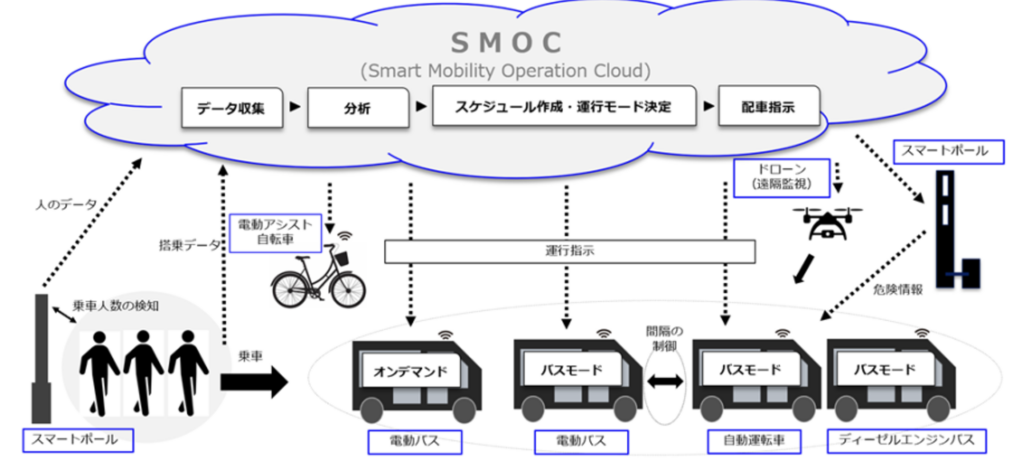https://www.nedo.go.jp/news/press/AA5_101774.html
In the Philippines economic growth and population growth are remarkable, but traffic conditions such as a rapid increase in users in the transportation sector and traffic congestion and congestion caused by self-discretion by privately-owned drivers have become social issues. The Philippine government has launched a public transportation vehicle modernization program as a transportation policy, aiming to improve convenience through punctuality and cashless transportation, as well as the safety, comfort, and environmental performance of vehicles used for public transportation.
Against this background, NEDO and the Philippines signed a memorandum of understanding in February 2023 for demonstration research which aims to improve the convenience of public transportation, improve transportation efficiency, and reduce energy consumption by introducing and operating a system that enables efficient public transportation operation. Demonstration research has begun in the Clark area, which is being developed as a smart city in the Philippines. By installing a cloud-based traffic control system SMOC in environmentally friendly vehicles such as electric buses, including autonomous vehicles, we aim to reduce GHG emissions and achieve energy conservation by improving operational efficiency through ensuring punctuality through optimal schedules tailored to travel demand, reducing waiting times through vehicle distance adjustment functions, and improving convenience through cashless payment.
In addition to data such as the location information and number of passengers from 13 electric buses (one of which is autonomous) and five clean diesel engine buses, data from smart poles and drones will be accumulated in the cloud. Based on this accumulated data, travel demand will be analyzed, and optimal operation schedules will be automatically generated to demonstrate the realization of effective and waste-free operation.
The efficiency improvements and contributions that we hope to achieve through the demonstration research are as follows.
[1] Operational efficiency: By using digital technologies such as AI to generate optimal operation schedules according to travel demand, we will provide efficient operation that maximizes transportation capacity with fewer vehicles.
[2] Multimodal: By combining different transportation methods such as clean diesel engine (Euro 4 engine *3) buses that cover medium to long distances on main roads, and electric buses, autonomous vehicles, and electric assist bicycles that cover short distances and the last mile (from home to the bus stop, from the bus stop to the destination, etc.), we will realize multimodal transportation that arrives at the destination efficiently and flexibly. This will eliminate the inconvenience of users having to walk long distances from their home or destination to the bus stop, or not being able to use the bus in the first place.
[3] Contribution to smart city development: The operation of the first self-driving vehicle in the Philippines and monitoring of travel demand using smart poles, drones and IT will contribute to the smart city development of the Clark area, which is being promoted by the Philippine government.

